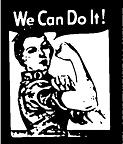home / teaching reading / homeschooling / gifted kids / breastfeeding / crafts |
|
|
"A good education for every child
does not mean the same education for every child. " Please use what works for you and your
child and ignore the rest. Every
child is different. If this
information does not seem to be a good fit for your particular child, then
keep looking and experimenting until you find what works. This Web Page by Pauline
Harding for Art Nurk, hardingpj@yahoo.com |
Phonics Games and ActivitiesThere are LOTS of phonics games! Some of the games mentioned on my phonemic awareness page fall into this category – just add the connection to letters or letter combinations. There are also a ton of ideas on my word wall page. Here are three more games to get you started: Silent EShort a to long a words: Start with some short a words -- tap, at, cap, hat, mat, Sam. Use a “silent e” to make the vowel “say it’s name” (long a) – tape, ate, cape, hate, mate, same. Do this on paper, with magnetic letters, or on a chalkboard. Try also with short I. “Jake the Snake”
Jake the snake takes things without asking – but only things that have a long a sound. Ask – “What will Jake the snake take, pie or cake?”. Also try game or book, cape or jacket, shovel or rake, platter or plate, soda pop or milk shake, bacon or eggs. (From “What a Baker Makes”, by Sharon McConnell, part of the Powerphonics series, PowerKids Press, 2002) Nonsense WordsPlay with nonsense words on the computer (in a word processing program) or on the fridge. The child makes a simple “word” using a few letters, and you pronounce it. They add a letter or two, and you say the “word” again. It gets pretty silly when you’ve got a fifteen letter word full of x’s and q’s. Still, it’s actually a fun phonics game. Some kids have a lot of trouble sounding out nonsense words themselves. They need the context cues provided by the rest of the sentence and the picures. If nonsense words aren’t fun, don’t bother with them. Phonics Worksheets & WorkbooksThe Internet is an increasingly useful place to find worksheets. While the search time doesn’t always make it worthwhile (it can be difficult to find a worksheet at just the right level on a particular topic), it can be a good way to try out worksheets in general to see if your child enjoys them. There are two basic kinds – phonics and theme-based. Phonics worksheets work directly on phonics skills. They might include circling pictures that start with “s”, or picking the word that doesn’t have a short “a”. Theme-based worksheets are about a topic (apples or butterflies or the flag or whatever). They might include coloring pages, dot-to-dot, short answer, crossword puzzles, etc. . http://www.enchantedlearning.com is a good source of theme-based worksheets. If your child likes doing worksheets, there are lots of workbooks that use a phonics approach to learning to read. Do NOT feel that you HAVE to do workbooks or worksheets – two of my kids learned to read without ever using them. My third child LOVES them, and they’ve been very helpful in teaching her to read. Hayes Phonics, by Dorothy Mitchell HarrisI like this series of workbooks because it has simple, clear black-and-white pictures and there is also a lot of information in the front of the workbook about teaching the concepts covered in the worksheets. While the suggestions are oriented to classroom use, and are rather bossy, I did find a lot of information about the kinds of concepts and activities to include in a phonics program. The series includes books 1A, 1B, 1C, 2A, and 2B. They’re about $5 each. Explode the CodeAnother popular phonics series – there are tons of workbooks in this series. Most kids won’t need all of them, but this series may be a good choice if you’re looking for a program that continues well beyond the basics. Anywhere Alphabet & Vocabulary GamesThese games are great for the car, the grocery check –out line, or anywhere you need to quickly entertain a group of kids. I Spy“I spy, with my little eye, something that begins with s.” The child can ask yes/no questions to figure it out. Take turns guessing. My Grandmother’s Bag“I packed my grandmother’s bag, and in it I put an apple.” “I packed my grandmother’s bag and in it I put an apple and a balloon.” “I packed my grandmother’s bag and in it I put an apple, a balloon, and cellophane wrap.” Take turns, and work your way through the alphabet. Each person must remember everything the previous people said, and add something starting with the next letter of the alphabet. In the AtticWe love this one – take turns describing what you saw in the attic, starting with the letter “A” and going through the alphabet. “In the attic I saw an antelope asking for anchovies.” “In the attic, I saw a bear biting a ball.” “In the attic, I saw a cat calling a cow.” Let your child figure out what letter of the alphabet comes next. |
